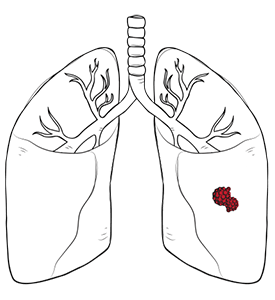

Chest wall tumours refer to abnormal growths that manifest within the tissues or bones of the chest wall. These tumours may be benign (non-cancerous), such as chondromas or hamartomas, or malignant (cancerous), often taking the form of sarcomas.
While benign tumours typically grow slowly and do not spread, malignant tumours can be aggressive, invade nearby structures, and metastasise to other parts of the body. Benign chest wall tumours are non-life-threatening and incapable of spreading to different parts of the body. Malignant tumours, on the other hand, are cancerous and can potentially metastasise to other areas. If you are concerned about a mass or growth on your chest wall, it is essential to consult a specialist in lung and chest diseases for a thorough evaluation and diagnosis.
Chest wall tumour symptoms include pain, swelling or difficulty breathing, although some remain silent and are only discovered through imaging. Diagnosis typically involves scans and a biopsy to determine whether the tumour is benign or malignant, which guides treatment options that may include surgery, chemotherapy or radiotherapy.
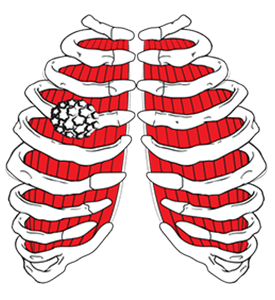
The chest wall creates a protective ‘cage’ to keep internal organs, such as the heart and lungs, safe. However, as in other parts of the body, your bones and tissues can also develop tumours on your chest wall. The chest cavity, also known as the thoracic cavity, is the anatomical space protected by the chest wall, housing vital organs such as the heart, lungs, and oesophagus. The chest wall forms the boundaries of this space, and its anatomy comprises bones, muscles, and blood vessels that play a crucial role in protecting the chest cavity.
The pathology of a chest wall tumour often depends on its origin and involvement in the chest wall structures. Tumours in the chest wall may arise from various tissues, and the space within the thoracic region is significant for containing these vital organs and potential tumour development.
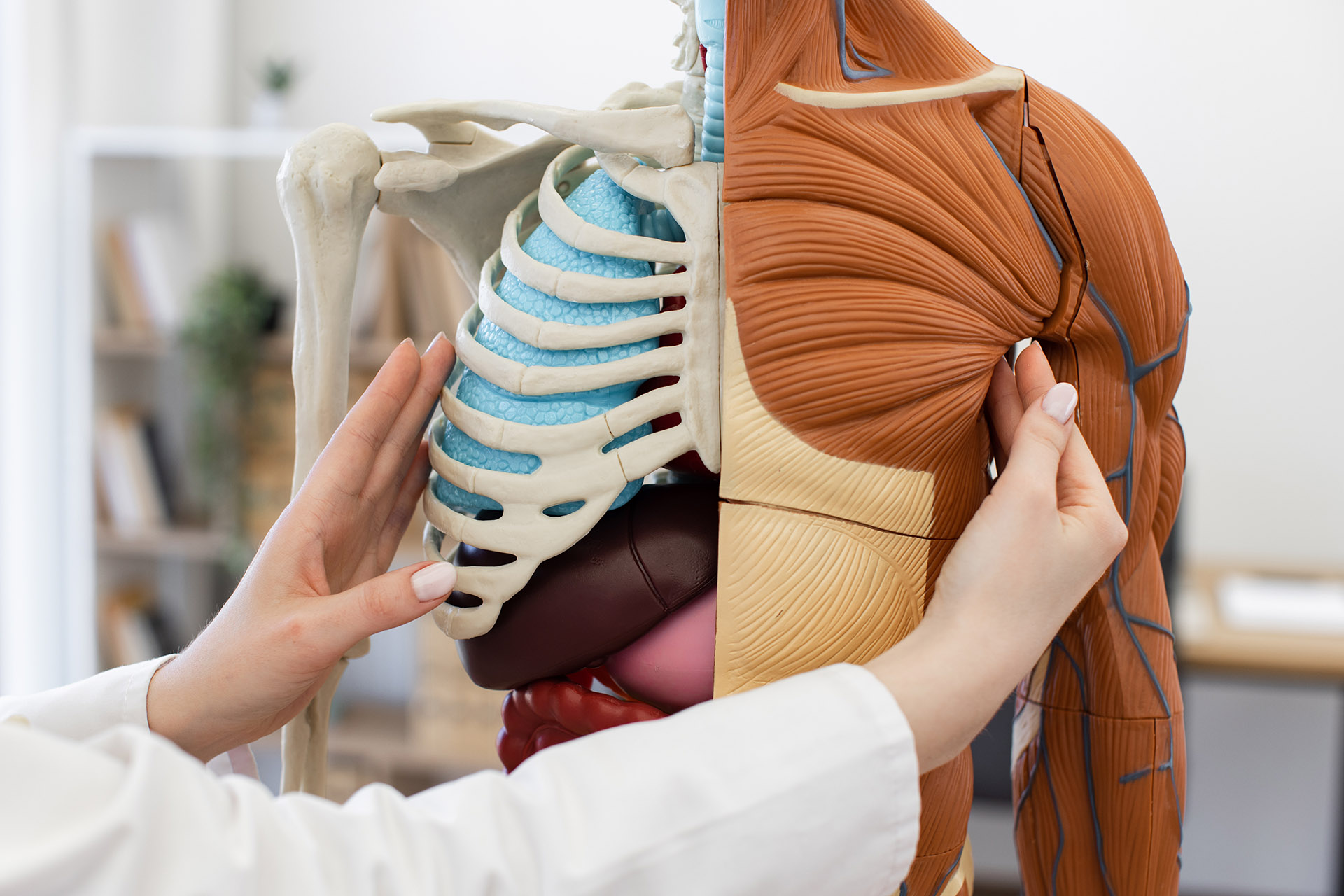
Many different types of tumours can grow in this area, either stemming from the chest wall itself or spreading from other parts of the body. Bone tumours, such as osteosarcomas and chondrosarcomas, are among the types that can originate in the bone of the chest wall. A tumour that stems from the ribs or sternum is considered a primary chest wall tumour – a malignant neoplasm – and may or may not be cancerous. Common non-cancerous tumours include chondromas, osteochondromas and fibrous dysplasia of the rib. Tumours in the chest wall can also involve soft tissue or cartilage.
Metastasis may occur when cancer cells from the primary chest wall tumour spread to other areas of the body. These secondary neoplasms share the same type of cancer as the primary malignancy. Tumours can invade blood vessels, allowing cancer cells to enter the circulation and spread to distant sites.
The most common cancerous tumours that arise from the chest wall are the sarcomas. A sarcoma is the most common malignant tumour of the chest wall, forming in the bones, soft tissue or cartilage. A large number of malignant wall chest tumours are sarcomas, though their symptoms vary depending on the tumour’s classification and its severity. Some people can experience anything from difficulty breathing and pain to swelling surrounding the sarcoma.
Symptoms of chest tumours can be variable. Often, they are subtle at first and may go unnoticed. A tumour may present with a growing mass or with persistent pain in the chest wall, depending on its size, location and involvement of surrounding structures.
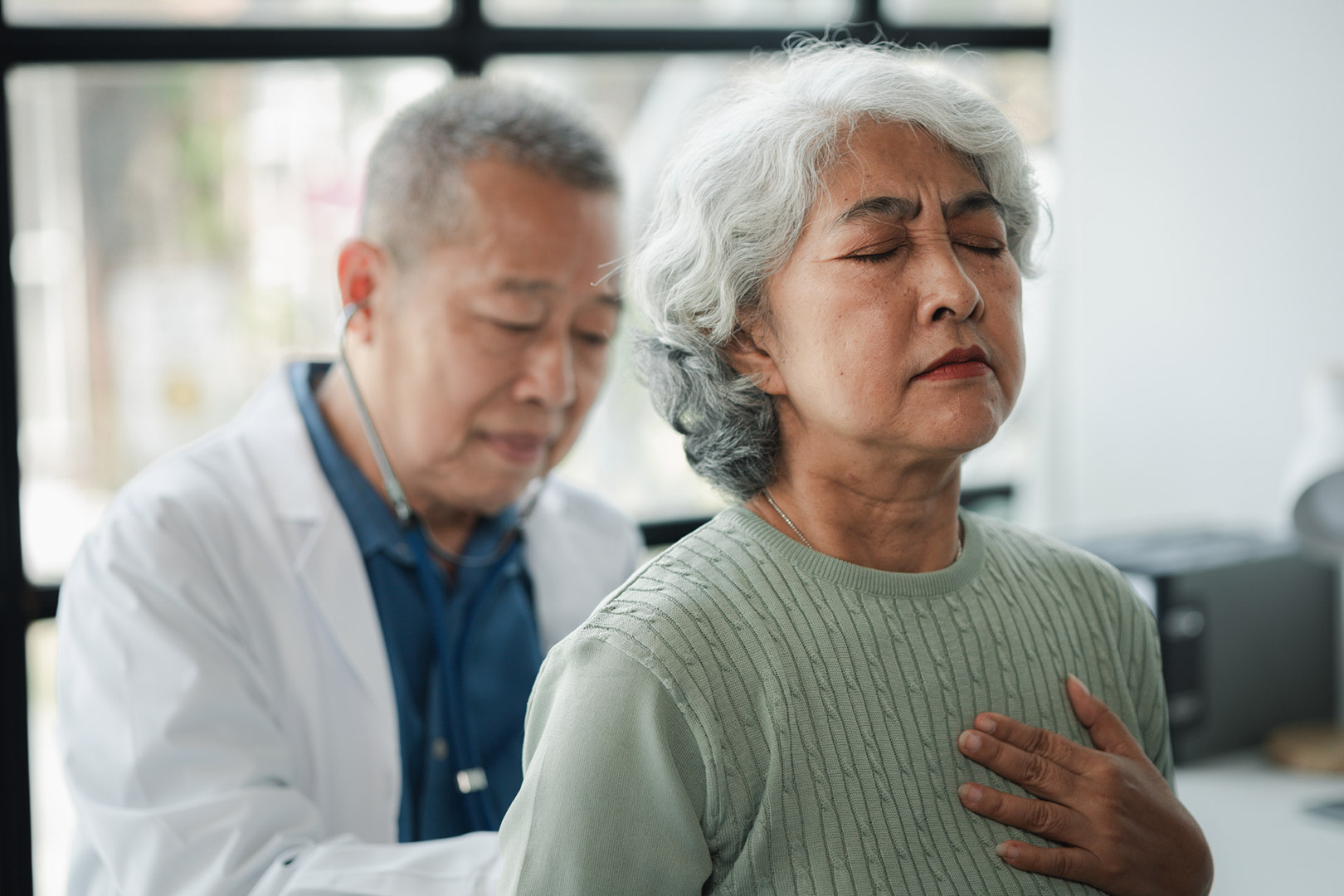
Chest wall tumours can arise from the bones, cartilage or soft tissues of the chest wall. Their exact causes are not always clear, but several risk factors increase the likelihood of developing them.
Primary tumours may develop directly in chest wall tissue, including soft tissue sarcomas, while metastasis can bring cancer from other parts of the body to the chest wall. Chronic lung disease and certain occupational exposures may further elevate risk.
Not all chest wall tumours are malignant. Benign forms exist, but they can still cause pain, swelling, or breathing difficulties and may sometimes require removal. Malignant tumours, however, are more aggressive and may spread, making early diagnosis and treatment essential.
Genetic predisposition is a key factor, with some inherited conditions raising susceptibility. Prior radiation exposure, whether from medical treatment or the environment, can also trigger abnormal growth. A personal history of cancer may increase the chance of secondary tumours spreading to the chest wall.
Symptoms of chest wall tumours often include swelling, pain and changes in chest shape.
Chest wall tumours have a variety of different symptoms, depending on their severity and classification. Sometimes, they present as mild lumps that are firm to the touch; other times, as masses that cause discomfort, pain and difficulty breathing. Occasionally, chest wall tumours can change the shape of the chest wall and may only be visible through imaging protocols. They can also present as a growing mass or cause pain, and may require a multidisciplinary approach for management.
Chest tumour symptoms may include fevers, night sweats, and/or weight loss, as it can affect other parts of the body.
Different types of chest wall tumours occur more frequently in men than in women. Chest wall tumours include both primary and secondary tumours, with diverse origins such as benign or malignant growths, infectious or inflammatory processes, and metastases from other organs. Some of these types tend to be more aggressive, while the types of tumours in the chest of females are more often benign. Ewing sarcoma is a common malignant tumour of the chest wall in children and young adults. Either way, there is a risk of a tumour being malignant, so it is important to get checked if you notice a new bump in your chest area.
To check for abnormalities, our team may conduct chest X-rays, which are often the first imaging study performed for chest wall tumours. If an abnormality is found, additional tests such as a computed tomography (CT) scan or magnetic resonance imaging (MRI) will be performed to ascertain the tumour’s classification and severity. After these preliminary assessments are completed, a biopsy may be performed to diagnose the tumour and determine whether it is benign or malignant.
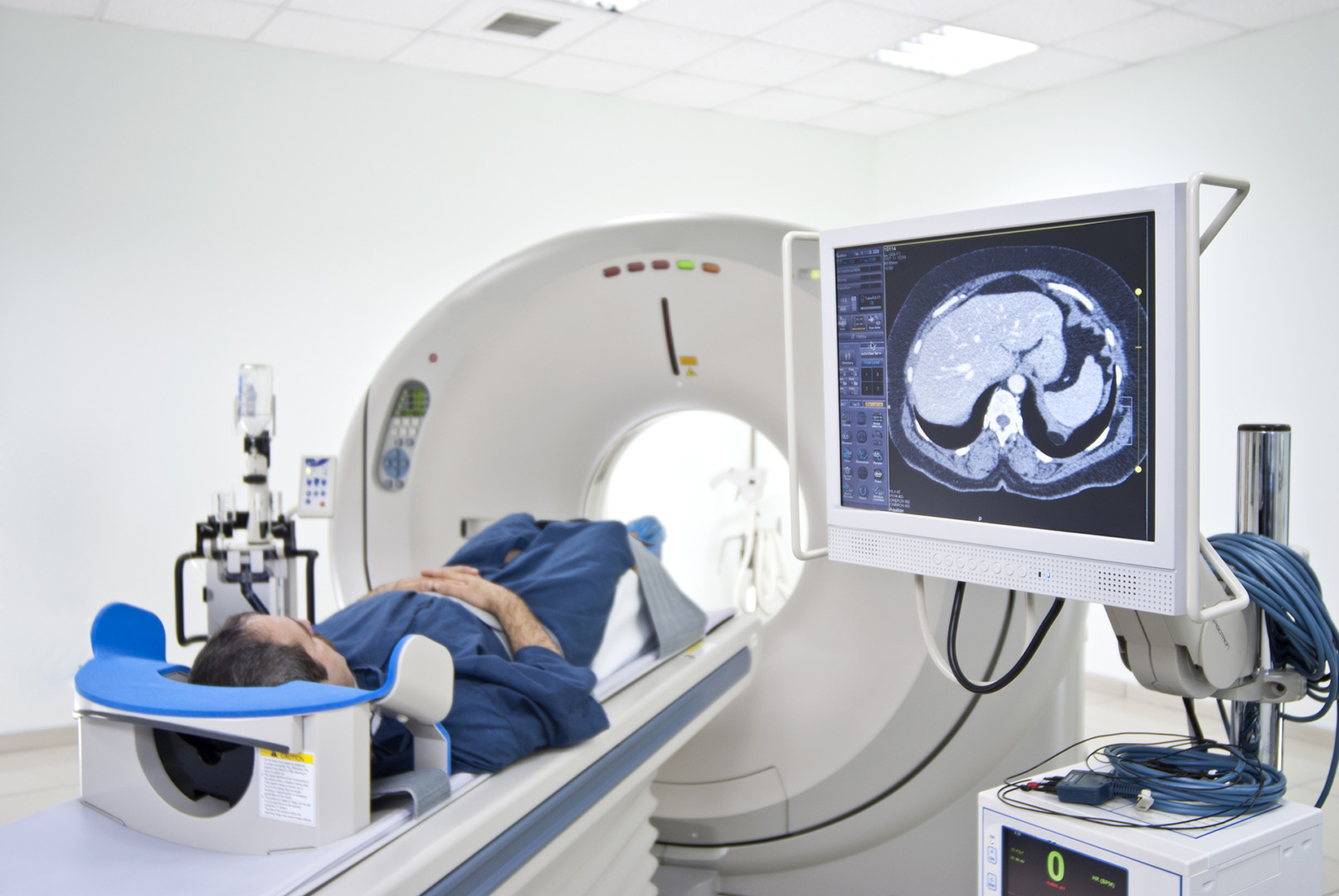
Chest wall tumours and sarcomas comprise a broad group of growths that can be either benign or malignant, with sarcomas representing one of the most common malignant types in this category. Sarcomas arise in the soft tissues, bones, or cartilage of the chest wall and are therefore considered a subset of malignant chest wall tumours.
Both chest wall tumours and sarcomas can present with similar symptoms, including pain, swelling or difficulty breathing if the tumour presses on nearby organs. Diagnosis often requires a combination of imaging and biopsy, not only to identify the tumour’s size and location but also to determine whether it is benign or malignant.
The overlap between these conditions is important. While not every chest wall tumour is a sarcoma, many sarcomas present as chest wall tumours. Treatment usually involves chest wall resection, which is a key component of surgical management for malignant tumours, ensuring complete oncologic excision with appropriate margins. For malignant sarcomas, additional therapies such as chemotherapy or radiotherapy may be recommended.
Thoracic surgery plays a crucial role in the multidisciplinary approach to the resection and reconstruction of chest wall tumours, helping to manage defect repair and preserve function after tumour removal.
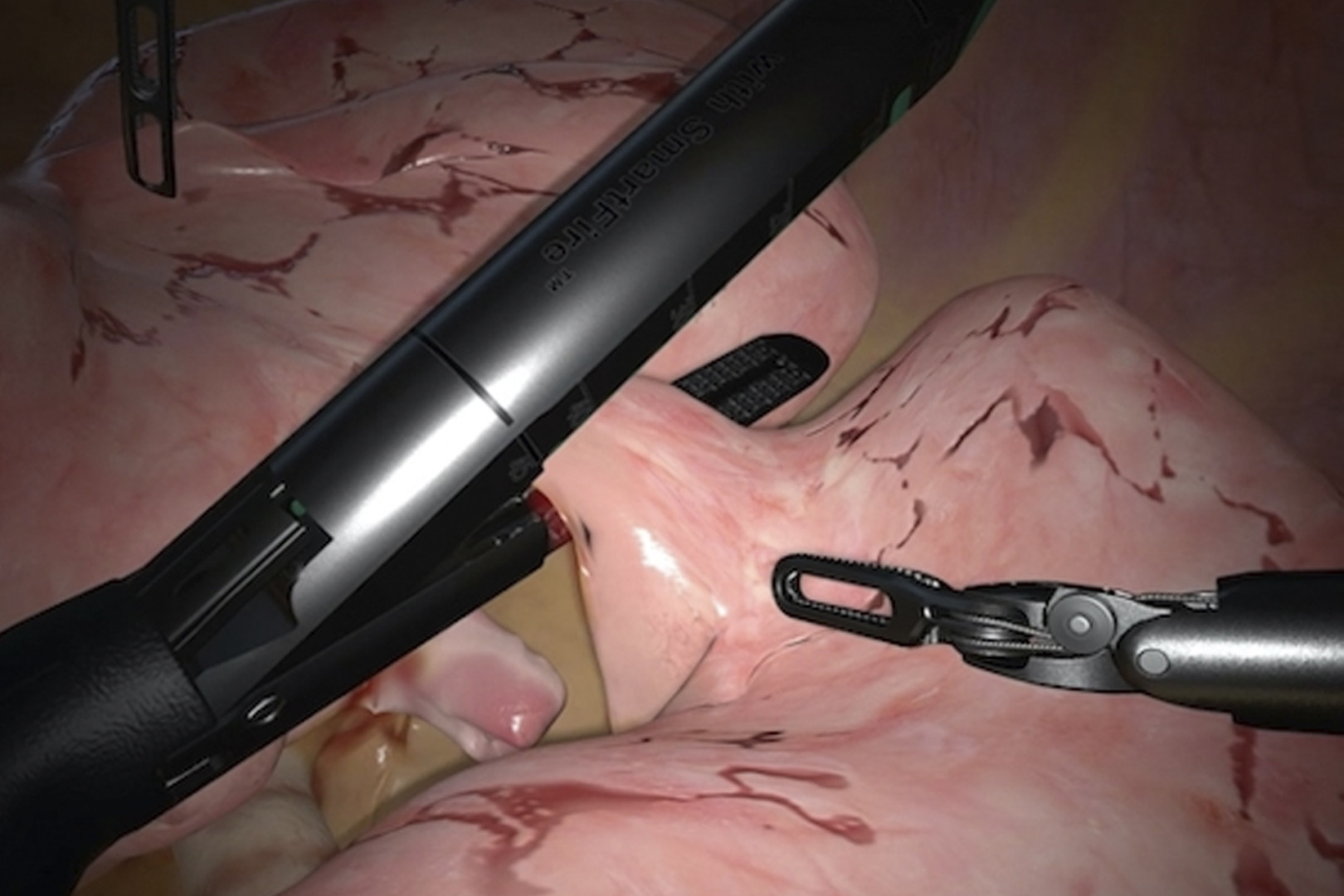
Treatment of tumours depends on the type found, and benign chest wall tumours may be kept under observation. However, some benign chest wall masses may still need surgical resection.
Some rare chest wall tumours, such as solitary plasmacytoma, are composed of monoclonal plasma cells and may be treated with radiation therapy instead of surgery.
If the tumour is cancerous, treatment options may involve surgery, chemotherapy and possible radiotherapy. Surgical resection will include removing the entire tumour and reconstructing the chest wall with the adjacent muscles and titanium rib plates.
Recovery from chest wall tumour surgery varies, as many variables contribute to the body’s healing. The general rule is to expect a short hospital stay for observation, typically lasting a few days, following chest wall tumour surgery. After a few weeks, patients often resume their normal daily activities at the discretion of their healthcare provider. It usually takes several months for a full recovery.
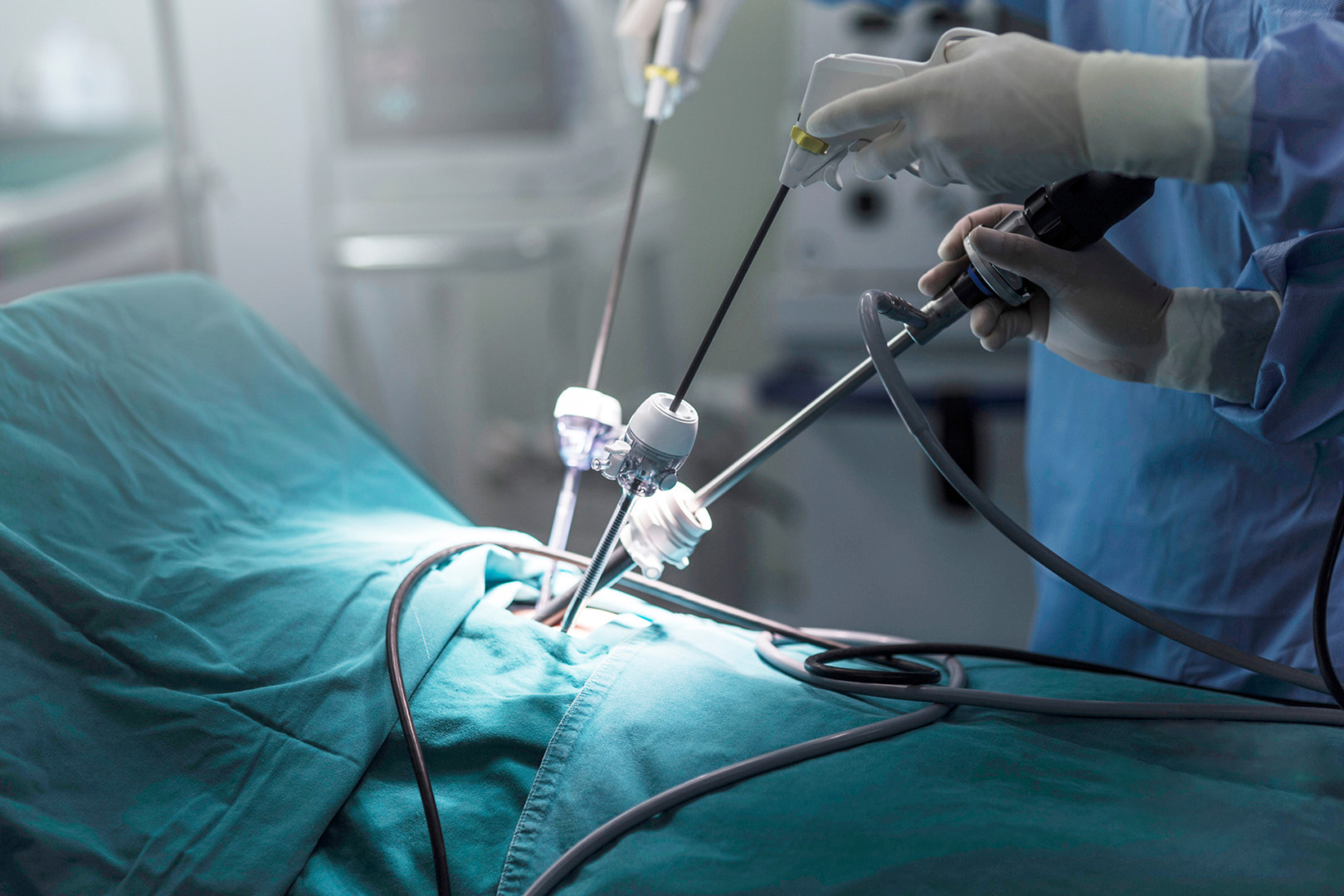
Chest wall tumours are not always visible. Sometimes they can only be located via an imaging scan, and are often only found during routine chest X-ray check-ups. Not having a bump does not discount the possibility of tumorous cells. If you regularly experience chest pain or discomfort and have difficulty breathing, it is advisable to consult a doctor for a checkup.
Life expectancy for chest wall cancer differs based on the type of cancer, cell differentiation and the stage of cell growth. It has been reported that more than 17 percent of patients with primary chest wall sarcomas may have a 5-year survival rate when it comes to primary chest wall sarcomas; longer if the disease is discovered in early-stage, adding to the importance of regular lung screening examinations.
Desmoid tumours grow in the body’s tissue. Since the chest wall contains soft tissue, it is susceptible to developing desmoid tumours. These are relatively rare and do not spread across the body or are benign. However, they can spread locally within a small area, making it essential to resect the tumour before it affects surrounding blood vessels, nerves and/or bones.
Like a desmoid tumour, a solitary fibrous tumour stems from the tissue, meaning it can develop almost anywhere in the body. They tend to be benign but can sometimes be malignant, spreading slowly. This makes them hard to notice until they are unusually large. Surgery is necessary to remove a solitary fibrous tumour.
DISCLAIMER: The information provided on this website is for general informational purposes only and is not intended as a substitute for professional medical advice, diagnosis, or treatment. The use of this website does not create a doctor-patient relationship and no medical advice should be inferred or assumed. It is the user’s sole responsibility to seek the advice of their healthcare professionals for any medical concerns they may have and the user should not disregard, or delay, prompt medical advice for any such condition.
Neumark Lung and Chest Surgery Centre benefits from the expertise of a multidisciplinary team led by Dr Harish Mithiran, senior consulting thoracic surgeon at Gleneagles Hospital and Mt Alvernia Hospital.
Neumark is a lung and chest specialist centre with access to leading treatment modalities to achieve the best possible outcomes for lung disease and preventative patient screening.
Our foremost priority is to treat your condition as effectively as possible. Schedule a private consultation today; complete the form below, call, +65 6908 2145; WhatsApp, +65 9726 2485; or email, info@neumarksurgery.com.
Gleneagles Medical Centre
6 Napier Road
#02-09 Gleneagles Medical Centre
Singapore 258499
Mount Alvernia Hospital
820 Thomson Road
#06-07 Medical Centre A
Singapore 574623